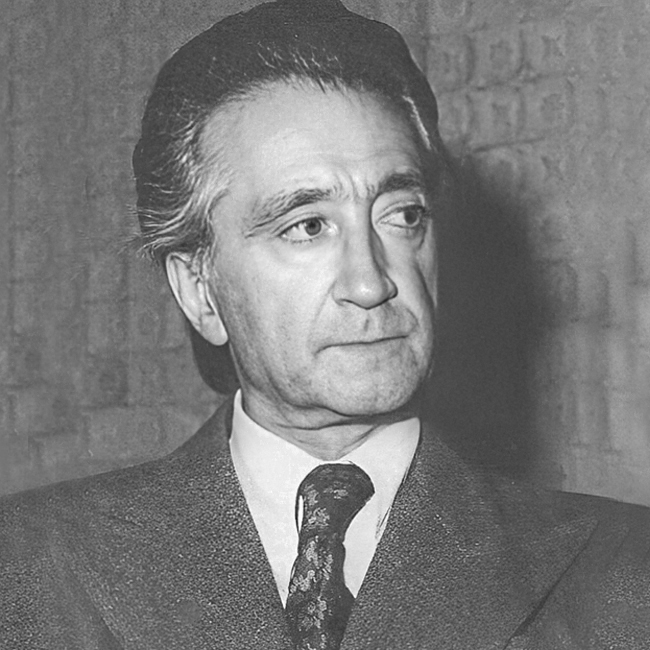

Farrokh Ghaffari (February 26, 1922-December 17, 2006) was an Iranian film director, actor, critic and author. He studied in Belgium and at the University of Grenoble in France in 1945. Ghaffari, along with Ebrahim Golestan and Fereydoun Rahnema, was a key figure in the early Iranian New Wave Cinema. In 1949, he established the National Iranian Film Center (Kānūn-i Millī-i Fīlm), initiating screening sessions for English-language films. Ghaffārī also founded the National Iranian Film Archives in Tehran. Ghaffari pioneered neorealist films in Iranian cinema with Junūb-i shahr (South of the City,1958), which the Pahlavi government banned for its portrayal of working-class poverty. The film was released in a heavily edited version in 1963 under the title Riqābat dar shahr (Urban Rivalry).
In 1964, Ghaffari directed Shab-i qūzī (The Night of the Hunchback), a dark comedy adapted from tales of One Thousand and One Nights. Ghaffari starred alongside Mohammad-Ali Keshavarz in the film. He later worked for National Iranian Television and directed his final film, Zanbūrak (The Falconet) in 1975. Farrokh Ghaffari was in charge of the Shiraz Arts Festival, an event dedicated to dramatic arts and music, held from 1346 to 1356. After the 1979 Revolution he moved to Paris and worked as a film critic for Positif.
